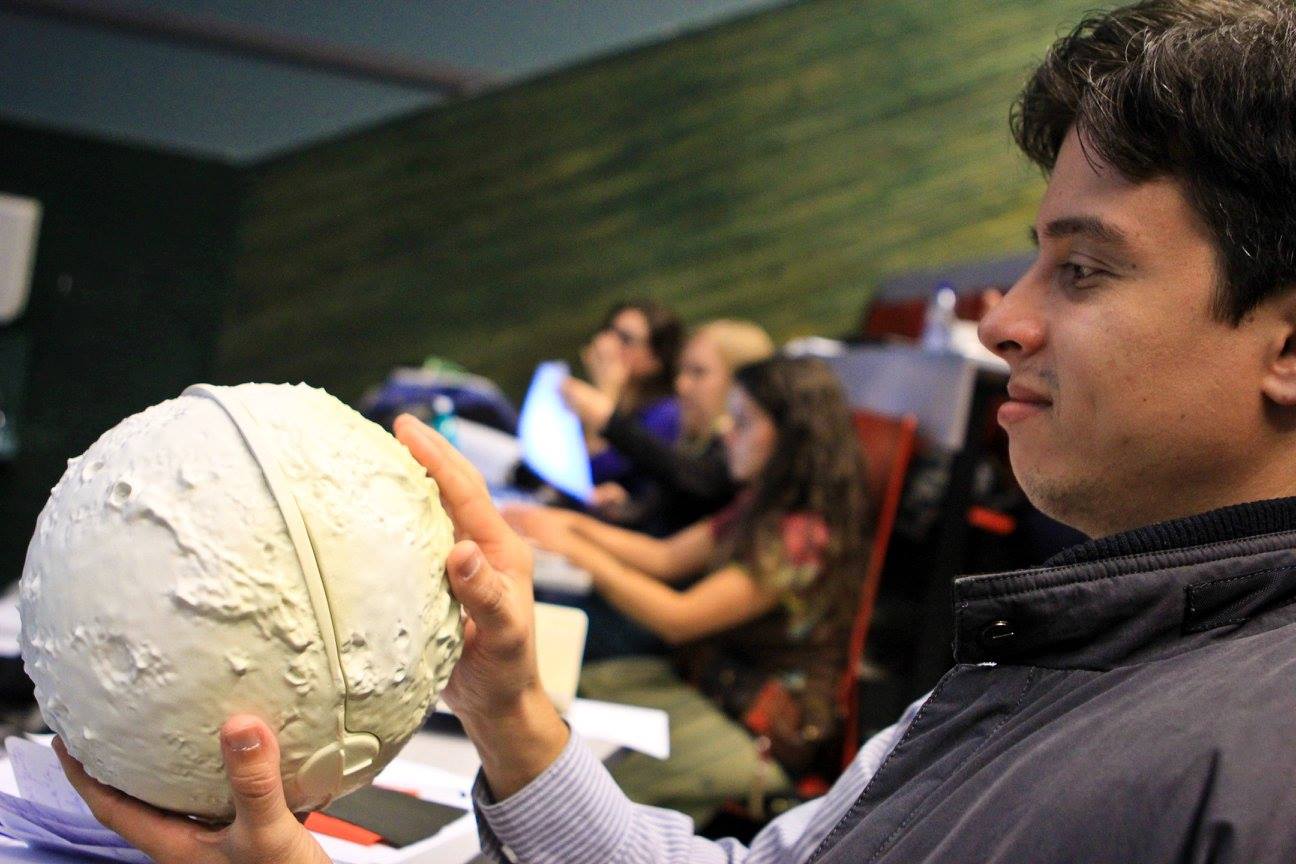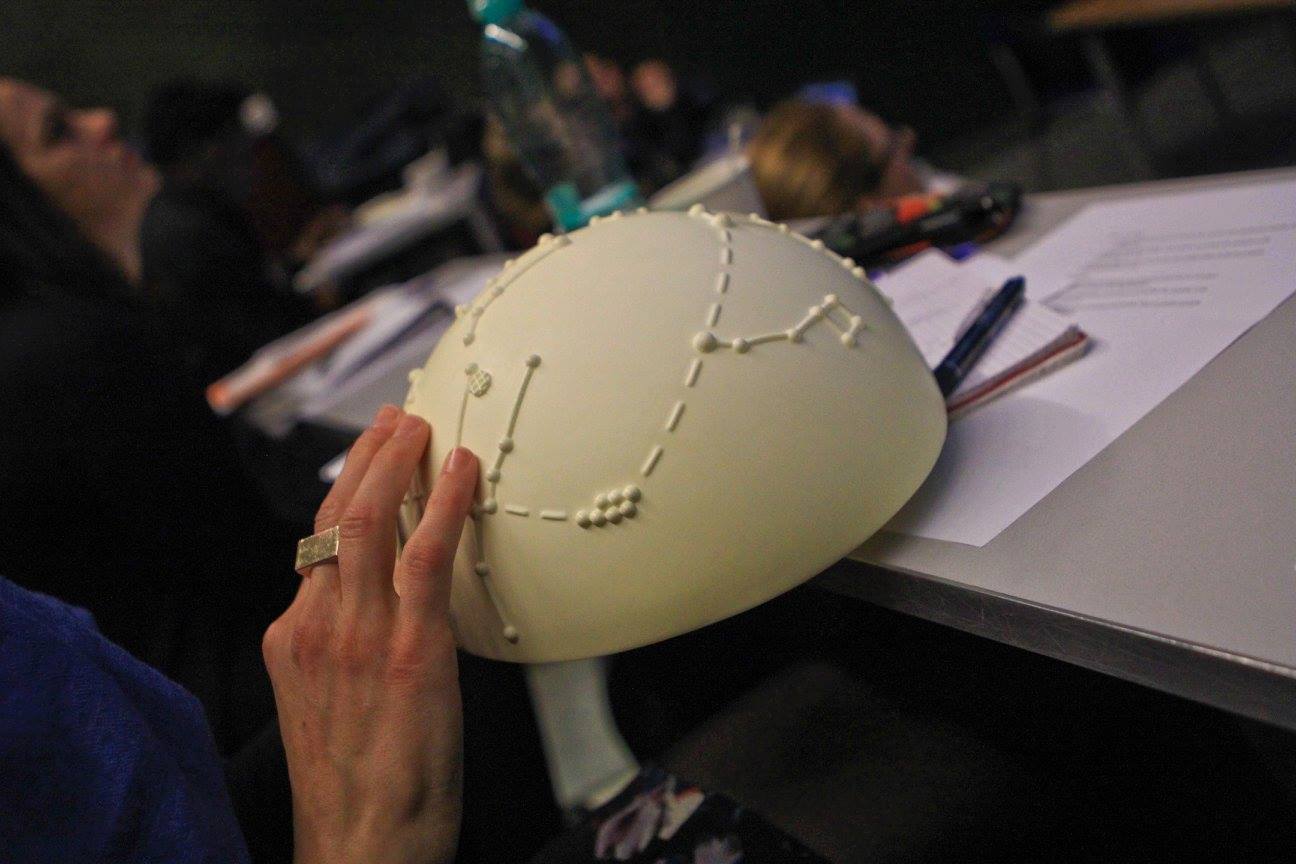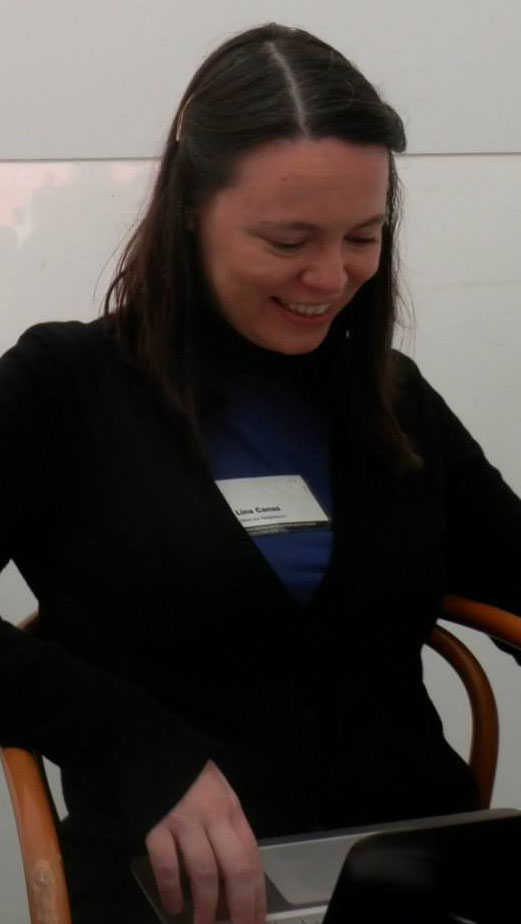By Lina Canas
This is the 2nd GAM article for the Diverse Universe week, Monday 18 to Sunday 24 April 2016. This week's posts on the GAM Blog will focus on the diversity of the global astronomy community.
The Universal Declaration of Human Rights states that “Everyone has the right freely to participate in the cultural life of the community, to enjoy the arts and to share in scientific advancement and its benefits.” (Article 27(1)). This is the opening quote under IAU Working Group Astronomy for Equity and Inclusion (WG3) led by Amelia Ortiz-Gil (Chair) and Beatriz Garcia (Co-Chair). This group gathers more than 30 experts and counts with the support of renowned institutions in the field of astronomy outreach and education, assistive technology, universal design, among others. First assembled in 2013, this group seeks to build and disseminate new strategies in Astronomy that facilitate the access to Astronomical resources and careers for people with special educational or physical needs, or those who might be excluded. After reflecting on the already existing programs, activities, and resources, the WG is now working on new approaches following the Universal Design of Learning, a framework to develop methods and tools accessible to all, thus ensuring a real inclusion for everyone.
In the past years, many have been the efforts to transform astronomy in a more accessible - not only the research in astronomy itself but also the educational and outreach programs. From Astronomers Without Borders’ Astronomy Without Barriers - People with Disabilities to IAU Astronomy for Development AstroSENSE and A Touch of the Universe programme - to name just a few - many have been the international projects, with international teams dedicated to moving forward using astronomy for inclusion. Nationally, many have been the efforts - from the USA with pioneers like Noreen Grice with You Can do Astronomy and Amelia Ortiz-Gil with Spanish IYA2009 Node People with Disabilities, to Japan with National Symposiums on Universal Design lead by NAOJ - many efforts whether nationally or internationally have been put together and gathered to make a difference.
 Photo 1 - Tactile Moon model during UNAWE workshop 2015. Credit: Stephanie Tumampos.
Photo 1 - Tactile Moon model during UNAWE workshop 2015. Credit: Stephanie Tumampos.
Much has been accomplished so far, and 2016 emerges as a year filled with workshops and programmes dedicated to people with disabilities.
Astronomy Beyond the Common Senses for Accessibility and Inclusion
(during XV Latin American Regional IAU Meeting, from 3 - 7 October 2016 in Cartagena de Indias, Colombia)
The first workshop on Astronomy Beyond the Common Senses for Accessibility and Inclusion is an interdisciplinary meeting with the participation of astronomers, educators and disability specialists and provides an opportunity to develop new strategies, work toward specific objectives, share experiences, discuss recent applications, and participate in sessions designed for audiences with disabilities.
Astronomy for Inclusion
(during the Japanese Universal Design Symposium, from 24 to 27, September 2016 in Tokyo, Japan)
Leveraging the work begun in 2010 with the first NAOJ Symposium and intimately collaborating with IAU Office for Astronomy Outreach, Astronomy for Inclusion is a program that aims to facilitate the implementation of inclusion workshops that produce and disseminate astronomy activities and resources following a Universal Design approach. The activities and resources presented will focus on using local low-cost materials, taking into particular account the cultural aspect in which each educational community is immersed. The activities and resources shared and produced will become available under Open Access for other educators around the world can use them and replicate the experience in their countries, providing a legacy to the international repositories and to the project itself.
Network and hands-on workshop
(during Communicating Astronomy with the Public, from May 16-20, in Medellin, Colombia)
With “Astronomy for Inclusion: network and hands-on workshop” the organizers intend to address one of the main challenges faced by the outreach community and informal educators around the world regarding inclusion: the struggle for support. Many outreach professionals struggle for support in providing sustainable, inclusive activities and programs; struggle with the feelings of insecurity, especially those without formal training on how to act more inclusive in their programmes and the sense of community where to turn to exchange ideas. In this workshop the participants can learn the latest programmes and activities for people with special needs, complemented by hands-on activities. They find how and where to find low-cost activities and repositories and implement them with the support of an international community. And finally, how to implement a workshop in their country for the national informal education community and outreach, meeting the standards and tailored to the country’s needs.
 Photo 2 - Half-sphere with tactile constellations from “A touch of the Universe” project during UNAWE workshop 2015. Credit: Stephanie Tumampos.
Photo 2 - Half-sphere with tactile constellations from “A touch of the Universe” project during UNAWE workshop 2015. Credit: Stephanie Tumampos.
Collaborative and complementary efforts - everyone can make a difference
One of the significant outcomes of the current work devoted to astronomy for equity and inclusion is the combining efforts from different groups. Many have joined forces with the goal of providing the best accessible resources, tailored programs and activities to support educational and outreach communities around the world. Everyone is welcome to join and be a part of this team of dedicated collaborators with a background in so many variate fields that by providing a little bit of their time and their knowledge make a huge difference in sharing astronomy with everyone.
 Lina Canas is currently based at National Astronomical Observatory of Japan in Mitaka, Tokyo working for the IAU Office for Astronomy Outreach. Throughout the years she has collaborated with many education and outreach associations in different projects, allowing her to know first-hand that the world is full of amazing people doing amazing things! Many of her hobbies overlap with her work, which sometimes is confusingly fun & confusingly stressing at the same time. ([email protected])
Lina Canas is currently based at National Astronomical Observatory of Japan in Mitaka, Tokyo working for the IAU Office for Astronomy Outreach. Throughout the years she has collaborated with many education and outreach associations in different projects, allowing her to know first-hand that the world is full of amazing people doing amazing things! Many of her hobbies overlap with her work, which sometimes is confusingly fun & confusingly stressing at the same time. ([email protected])







